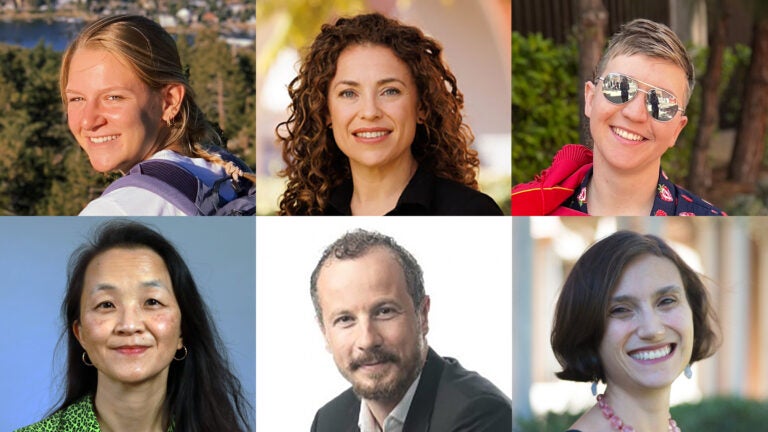
USC’s 2024-25 Fulbright Scholars are (top row, from left) Jordan Chancellor, Jenifer Crawford and Katie Googe (Photos/Courtesy of the subjects); (bottom row, from left) Nina Kang (Photo/Mike Glier), Serghei Mangul (Photo/Ed Carreon) and Jessica Marglin (Photo/Peter Zhaoyu Zhou).
Fulbright Scholar awards go to 6 Trojans
The USC 2024-25 Fulbright Scholars will conduct research and teach in locations from Mexico to Europe and the Middle East.
Four USC faculty members and two doctoral candidates have been named recipients of Fulbright U.S. Scholar Programawards for the 2024-25 academic year from the U.S. Department of State and the Fulbright Foreign Scholarship Board.
Sponsored by the U.S. Department of State, the highly competitive Fulbright awards support scholars in teaching and conducting research abroad. The six Trojans are among more than 800 scholars who will work abroad and expand their networks of professional colleagues through the program.
JORDAN CHANCELLOR: Fulbright Scholar in Spain’s Canary Islands
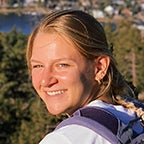
Jordan Chancellor, a doctoral candidate at the USC Dornsife College of Letters, Arts and Sciences, will teach marine sciences in the Canary Islands, off the coast of northwestern Africa.
Chancellor, who hails from Ramsey, Minn., will also work on a commercial seabream breeding program, a natural extension of her doctoral research under USC Dornsife’s Andrew Gracey, associate professor of biological sciences. She studies population genomics in commercial aquaculture species at the Nuzhdin Aquaculture Lab, focusing on selective breeding to build climate change resilience.
“My PhD research utilizes a variety of molecular approaches in order to better understand the adaptation and domestication of commercial shellfish species to ocean acidification,” she said.
Chancellor said her long-term goals include continuing her research in the blue economy and aquaculture industry and developing sustainable strategies, products and systems that support food security as the climate changes.
JENIFER CRAWFORD: Focusing on racial and social justice in language education
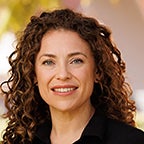
Professor of Clinical Education Jenifer Crawford of the USC Rossier School of Education specializes in teacher education. Her research agenda focuses on racial and social justice in language education, exploring how linguistic, racial and socioeconomic inequities affect minoritized and working-class students. Crawford has been at USC for more than 15 years.
In January, Crawford will return to Mexico, where 20 years ago she studied at the Universidad Nacional Autónoma de México and Universidad Pedagógica Nacional and taught English at a secondary school in Oaxaca. Her current project aims to enhance diversity, equity and inclusion in English language teaching at the Universidad Veracruzana in Xalapa, Veracruz.
“The Fulbright fellowship is an opportunity to deepen practices, scholarship and language skills toward personal and professional transformative praxis,” Crawford said.
Crawford was previously awarded a Fulbright Scholarship in 2010, which funded her work in Brazil.
KATIE GOOGE: Fulbright Scholar will teach sci-fi in the Czech Republic
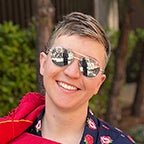
Originally from Athens, Ga., doctoral candidate Katie Googe came to USC Dornsife to study the relationship between speculative fiction and understandings of history and time in writings of the late 19th and early 20th centuries.
She said her doctorate in English, which will be completed this month, focuses on American speculative fiction authors from the 1880s to the 1930s “who reimagined history as a way to condemn racism and imperialism.”
She’ll carry her interest in science fiction, the legacies of colonialism, gender and sexuality, and the connections between literature and film and television to Masaryk University in the Czech Republic, where she’ll teach classes exploring 19th- and 20th-century science fiction’s take on time and imperialism.
Googe said she’ll also research the ways in which both Czech and American speculative fiction authors in the period between World Wars I and II understood the idea of empire.
“I have always found that discussing my work with others gives me valuable insight into concepts I take for granted, and I am excited to spend a year immersed in the perspective of an American studies department outside of the U.S.,” she said.
In the long term, she aims to remain in academia, teaching and conducting research on American literature and its international connections.
NINA KANG: Integrating instructional technology in language classrooms
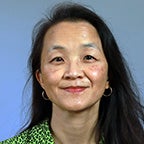
Nina Kang, a USC Dornsife master lecturer, will join the University of Jordan in Amman as a Fulbright Scholar. Her project aims to integrate instructional technology in language classrooms, fostering equitable access to emerging tools and skills crucial for modern education.
“Teaching academic and research writing for international graduate students at USC in the era of AI has forced me to reconceptualize my teaching approach and philosophy,” she said. Kang has extended this expertise by engaging in consultancy work with the U.S. Embassy in Vietnam, where she leads workshops for Vietnamese teachers on AI integration.
Kang’s Fulbright project also builds on her commitment to educational innovation and global engagement. Having previously worked in conflict-affected regions like the Balkans, Kang recognizes the transformative power of education during times of unrest.
“One of the most important criteria for Fulbright was to go to a country where I can contribute to building and strengthening an educational infrastructure,” Kang said. “Jordan is geopolitically and strategically significant in the ongoing Middle East crisis.”
As master lecturer and assessment and testing coordinator at the USC American Language Institute (ALI), Kang oversees the International Students English Exam and contributes to the Taskforce on Academic Integrity.
SERGHEI MANGUL: Teaching bioinformatics in Moldova
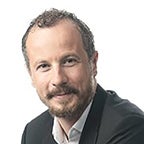
Serghei Mangul is an assistant professor of clinical pharmacy and quantitative and computational biology at the USC Alfred E. Mann School of Pharmacy and Pharmaceutical Sciences. The Fulbright Scholarship will enable Mangul to devise and implement an educational program at the Technical University of Moldova on bioinformatics — the computational analysis of biological data — and its applications in metagenomics, which studies the interactions of microorganisms taken in bulk samples from their natural environments.
At his laboratory at USC Mann’s Titus Family Department of Clinical Pharmacy, Mangul applies these leading-edge data technologies to define the mechanisms of disease. He is equally committed to democratizing their use for life scientists worldwide.
“Bioinformatics should not be the sole province of wealthy nations,” he said.
Mangul was born in Moldova, which was part of the former Soviet Union and is considered a lower-middle-income country. He added, “I have a deep personal connection and empathy for the challenges and transitions the nation has faced.”
Mangul also hopes the knowledge he shares will spread beyond borders: “I dream of seeing Moldova and all of Eastern Europe as part of the global bioinformatics community.”
JESSICA MARGLIN: Fulbright Scholarship supports Mediterranean history project
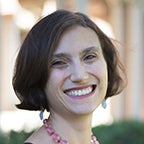
Jessica Marglin, USC Dornsife professor of religion, law and history, who holds the Ruth Ziegler Chair in Jewish Studies, will use her award to support research in France for her book project The Extraterritorial Mediterranean: Sovereignty and Jurisdiction in the Nineteenth Century. She’ll be affiliated with the Institut National des Langues et Civilisations Orientales in Paris.
Marglin’s scholarship focuses on the history of Jews in North Africa and the Mediterranean and of non-Muslims in the Islamic world, with a particular emphasis on law. Her new book will explore “extraterritoriality,” a legal status under which non-native individuals can claim exemption from local laws. It’s similar to the modern concept of diplomatic immunity, Marglin said.
Extraterritoriality is largely extinct today, but in the 19th century, she said, all foreigners in the Ottoman Empire or Morocco benefited from this law: “From the end of the Napoleonic Wars to the First World War, extraterritoriality provided the legal glue that bound together huge numbers of people on the move across the Middle Sea.”
This is Marglin’s second experience with the Fulbright program. From 2006 to 2007, a Fulbright Scholarship funded her study at Hebrew University in Jerusalem.
USC 2024-25 Fulbright Scholars: About the program
Since 1946, the Fulbright Scholars Program has enabled more than 400,000 students, scholars, teachers, artists and professionals to study, teach and conduct research in over 160 countries.
Notable Fulbrighters include 62 Nobel laureates, 89 Pulitzer Prize winners, 80 MacArthur Fellows, 41 heads of state or government, and thousands of leaders across the private, public and nonprofit sectors.
USC’s Margaret Crable, Ellen Evaristo, Aly Vander Hayden, Darrin S. Joy, Michele Keller and David Medzerian contributed to this report.



